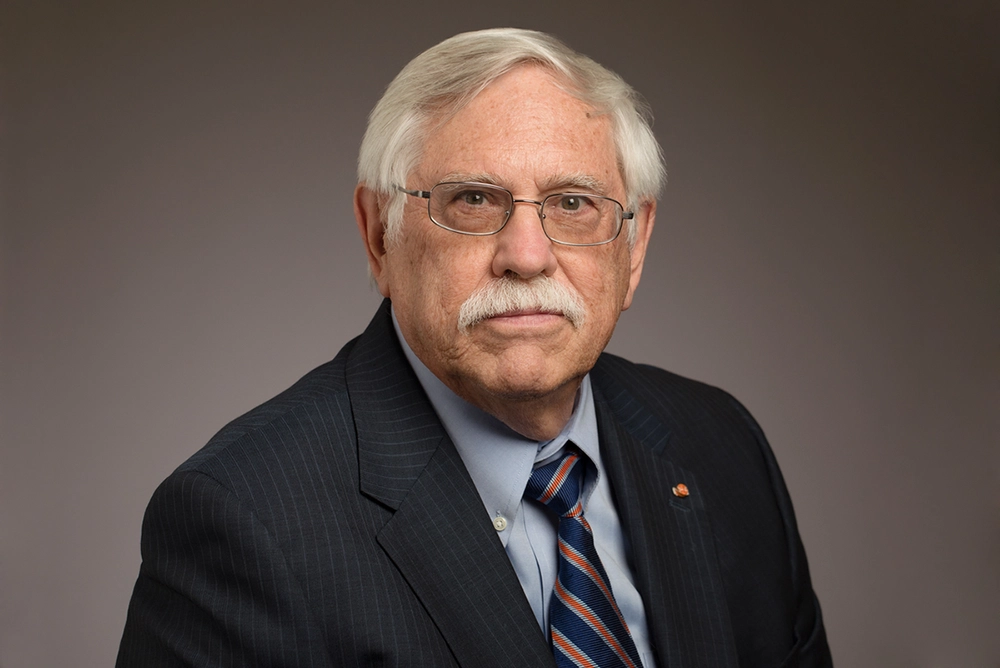
Responses to terrorism require reasoning, not outrage, says a writer of its history
by Craig Chamberlain, Social Sciences Editor
CHAMPAIGN, Ill. — Terrorism is constantly in the news somewhere, its threat seemingly everywhere.
Viewed as a type of warfare, “it puts us all on the front line,” said John Lynn, a professor emeritus of history at the University of Illinois and author of a new book on the subject. “We really have no choice in the matter.”
But we do have a choice in how we respond, Lynn said, and can do so without playing into terrorists’ hands.
That requires a better understanding of their goals and strategies, of how terrorism works, of the psychological warfare at its heart, Lynn said. He seeks to provide that understanding in “Another Kind of War: The Nature and History of Terrorism,” published this month.
Tailored to students and others new to the subject, the book is “an effort in civic education and, in a sense, civil defense,” Lynn said.
Common definitions of terrorism almost always stress that instilling fear is the terrorists’ goal, but Lynn said the real goal is often to incite outrage. They want a reaction. They know that “outrage gets your enemy to do dumb things.”
“The terrorists are trying to manipulate us, to weaponize our emotions,” he said. “They are trying to accomplish something. They are playing to audiences, sometimes various audiences, and we have to ask, not ‘How do we get those bastards?’ but ‘What are they trying to get us to do?’”
Preventing all terrorism is impossible, Lynn said, but “you can short circuit it at the level of its psychological impact. You do that with knowledge and understanding, and hopefully a little wisdom, and very much with a sense of proportion.”
Contrary to popular belief, terrorists are not crazy, he said, but rational actors who often have studied the techniques and strategies of other terrorists, insurgents and conventional militaries. “They are no more likely to be psychotics or sociopaths than the rest of the general population,” he said, though they do live in a “different moral universe” that justifies terrorist acts in service to their perceived greater goals.
Lynn came to the subject following 9/11, and as a military historian. His interest was sparked, in part, by parallels he saw between terrorism and insurgency, and in the ways one can sometimes morph into the other. He saw terrorism as another kind of war, just fought by different means.
He developed a course on the history of terrorism, and then an online course, and the book was a natural outgrowth.
Al-Qaeda and the Islamic State may be the face of terrorism for many Americans, and they get their share of attention in Lynn’s book, but his take on the subject was much broader. He examined how terrorism has been used by nations, militaries and societies; by the religious and non-religious; by the left and right; by white supremacists, urban guerrillas and narcotraffickers; in places ranging from Algeria and Ireland to Israel and the U.S.
“Terrorism can serve many different masters, and it has,” Lynn said. “When most people write about terrorism, all they want to write about is sub-state terrorism by extremists, but I think it's fair to talk about the Stalinist purges in the Soviet Union, or the cultural revolution in China, or carpet bombing by the Allied air forces in Germany and Japan during World War II.”
Lynn’s history starts with 1848, a year of failed revolutions in Europe, after which came the first writings laying the groundwork for modern-day terrorism. Through his research, he developed a conceptual framework that defines six levels of terrorist organization – from strong to weak, or the nation to the individual – as well as three distinctive waves of terrorism and four terrorist strategies.
He doesn’t claim his framework is definitive, but hopes it can be a tool for those seeking the best response to both terrorists and those exploiting fears of terrorism – for instance in scaling back rights and freedoms. A prime example, he said, is the Patriot Act passed in the wake of 9/11. It is still in effect and used in many ways beyond countering terrorism.
“Different terrorist actors pose different degrees of threats to different target audiences,” Lynn wrote, so the threat must be seen in context. The terrorism of the Islamic State as practiced in Iraq and Syria cannot be exported to the U.S. “Lone wolf” terrorists may claim victims, but they are not an existential threat to the nation.
“Overreacting to terrorist acts can make the terrorists look stronger than they really are, increasing their impact and even winning them converts and recruits,” Lynn wrote. “In dealing with terrorism, wisdom consists of knowing what not to do, as well as what should be done.”
Reprinted with permission from the Illinois News Bureau. To see the original version, visit this page.